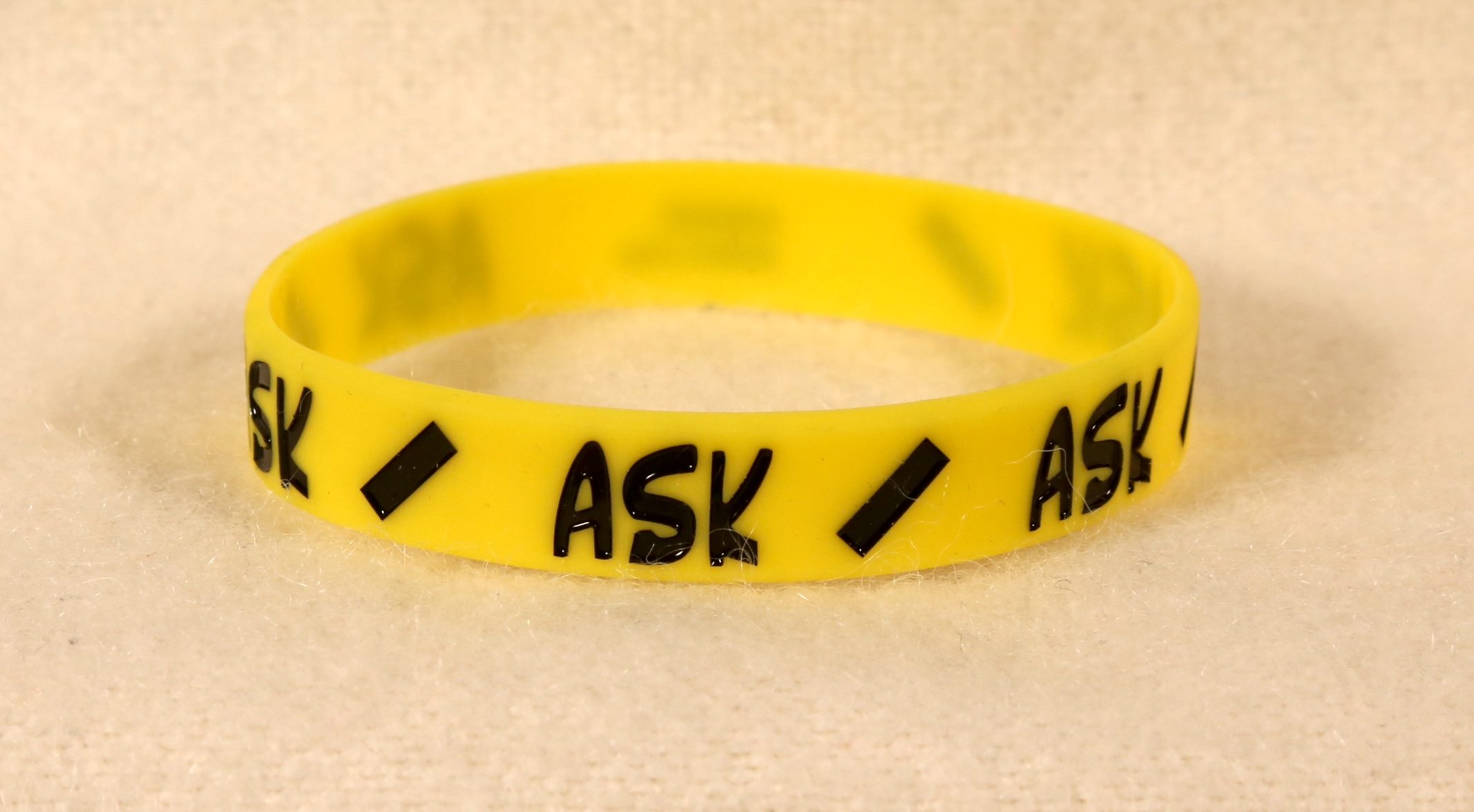We sell bands in red (“no”), green (“yes”), and yellow (“ask”). The yellow band is special to me: It was a yellow band that inspired me to start the project. But it’s also controversial.
Why? Because as one friend said, “‘Ask’ should always be assumed.” By including an “ask” band, the thinking goes, I was implying that sometimes “yes” means “grab me without asking”.
It’s a valid point, one that our first custom-band client Neuq/FS seemingly agrees with: Their order was only for the red and green bands. The same goes for “The Booty Call”, a new party that ordered their own red and green bands from another source. (Which is great! The Consentbands idea belongs to everybody.) I actually agree with this point internally: If I were to wear a green band, I’d still want people to ask before touching.
At the same time, I know of parties like Meat Market at Club Church, where “ask” is simply not part of the event. I’m reminded of a partner when I was in college in Ohio, a townie who was partly raised by a biker gang in place of absent parents. She told me that some of them just liked to fight, full-on fistfights that sometimes ended with broken noses and concussions. It was their entertainment. I was horrified, but as she said, “It’s not a problem — as long as they only fight people who also want to fight.”
In an integrated society, someone who goes to events like Meat Market might also go to yours. This is what real diversity is: Groups of different people agreeing to different rules of behaviour among themselves, then adapting to new rules in new situations. That such diverse cultures can happily coexist is too often overlooked by people dug too deeply in their own subcultures, from all social and political backgrounds.
That’s why it’s so important for each cultural leader to define what “yes”, “no”, and “ask” means. It must be explicit and it must be communicated. The world is bigger than your little family. Sometime “ask” makes sense; sometimes it doesn’t. You, as a cultural leader, have to decide that.
(One upshot from this discussion: We now offer a red/green two-band set for €5 with free shipping worldwide. The three-band set is €6.)
I’ve been trying to figure out how Consentbands, as a business, can encourage party organisers and cultural leaders to be explicit about what “Yes”, “No”, and “Ask” mean in their contexts. One idea is to include a laminated sign (or at least a digital file) in each Vendor Pack, with rules specified by the customer.
What are your ideas?

